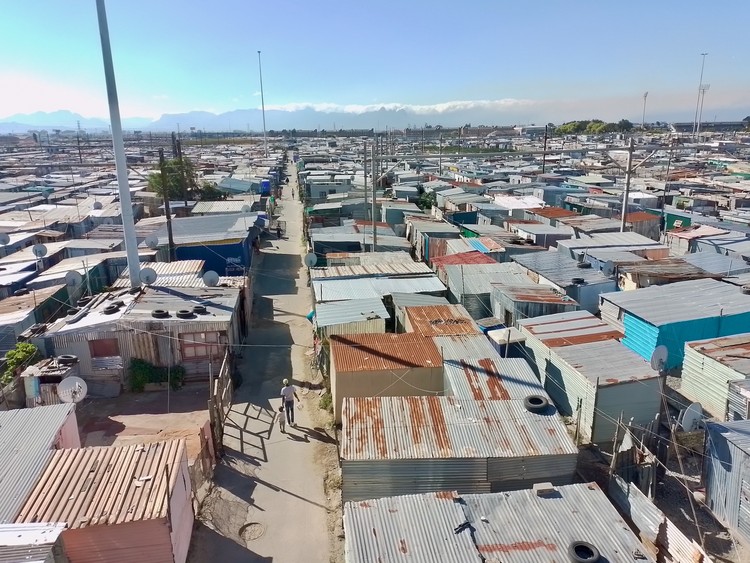A letter, apparently written by gangsters in Philippi, warns they will kill Somalis if extortion fees are paid to their rivals
Residents and businesses in Philippi (pictured above) are staying indoors after warnings of a gang turf war in the area. Archive photo: Sandiso Phaliso
Residents and businesses in Philippi (pictured above) are staying indoors after warnings of a gang turf war in the area. Archive photo: Sandiso Phaliso
On Saturday, gangsters apparently sent letters to community leaders, warning that learners should stay at home this week.
The gangsters, from the Marcus Garvey suburb in Philippi, also warned businesses must pay protection fees to them, and not the gang from neighbouring Lower Crossroads.
They threatened to kill “every Somalian” if their demand was not heeded.
With a turf war looming, learners have stayed at home and many businesses have kept their doors closed.
A letter apparently circulated to community leaders in Philippi East has caused immense fear in the Cape Town township.
Learners have stayed away from schools and businesses have temporarily closed.
According to community leader Xolile Matshaya from the Philippi neighbourhood of Marcus Garvey, a gangster handed him a letter with the following text:
Dear Community
There are new tax collectors from Marcus Garvey. Do not give these lower Crossroads boys money ever again, or else we will kill every Somalian.Thank you. Be informed Collection date is on the 05th every month.Yours FaithfullyMarcus Garvey
Somalis in Philippi are associated by community members with running the township’s spaza shops. GroundUp is unable to verify the origins of the letter but its existence has undoubtedly caused panic.
We attempted to speak to Somali spaza shop owners but they were reluctant to comment.
At Phakama High School, only 20 of the school’s more than 1,300 learners arrived for class on Monday, according to Western Cape Education Department (WCED) spokesperson Bronagh Hammond. The highest attendance was at Vukani Primary School where about 430 of the 1,200 learners arrived.
A teacher at Phakama High on Tuesday told GroundUp learners continued to stay at home, with even fewer arriving in the morning.
Many shops along Stock Road which divides Marcus Garvey and Lower Crossroads, were also closed as they feared being targeted by the gangs.
Matshaya said on the first Monday of each month the gangs collected protection fees from businesses in the area, as well as from private households that rented out rooms and backyard shacks.
He said the Marcus Garvey gang was now refusing to allow the syndicate from Lower Crossroads to collect money from businesses in Marcus Garvey. Both gangs claim Marcus Garvey as their territory.
Various gangs extort money from businesses in a number of Cape Townships. Extortion in Philippi and Nyanga is particularly common.
Police spokesperson Andre Traut said the South African Police Service (SAPS) was aware of a threat of possible violence in the area, and the origin and circumstances surrounding these threats were now part of a police investigation.
Traut said additional operational forces have been deployed in Philippi East to ensure the safety of the community, and curb any gang related violence.
He said extortion was among the top crime priorities in the province. “Every endeavour is made to combat and root out the phenomenon.”
He said an extortion task team had been established and their investigations have successfully brought cases to court.
While there has been police presence in the areas, teachers said their safety, and that of their learners, was under threat.
A teacher at one of the schools said it was decided over the weekend that learners should stay at home until the situation has stabilised.
Speaking on condition of anonymity as she hadn’t obtained authority to speak to the press, the teacher said the few pupils who arrived on Monday were sent home for their safety.
Parent Sesethu Njokwana said she kept her two children at home and would only send them to school when it was safe to do so.
Njokwana said the environment children were growing up in was not safe and disadvantaged them.
The owner of a salon on Stock Road said he will keep his business closed until it is safe to reopen.
“We are caught in the middle because this month these guys come and take the money and the next month it is others who come. It is just not safe anymore,” he said.
“For safety reasons parents choose not to send their children to school, as they were advised by community leaders,” said the teacher.
“Everyday, teachers are expected to report at the schools but we can’t blame parents for keeping children indoors,” said the teacher.
Hammond said the WCED “has engaged with the local SAPS and has requested that there be police patrolling around the schools at dismissal times”.
“The increase and threats of violence within the community is concerning and will continue to engage with law enforcement,” said Hammond.
“We will not have our learners’ basic rights inhibited. Every school day is important to us. So yes, disruptions like this within a school community is a loss of teaching and learning time.”
She said the threat to safety also took a physical and mental toll on learners and teachers, and could be traumatic.
Republished from GroundUp, story By Sandiso Phaliso. Click here to be redirected to the original article.



